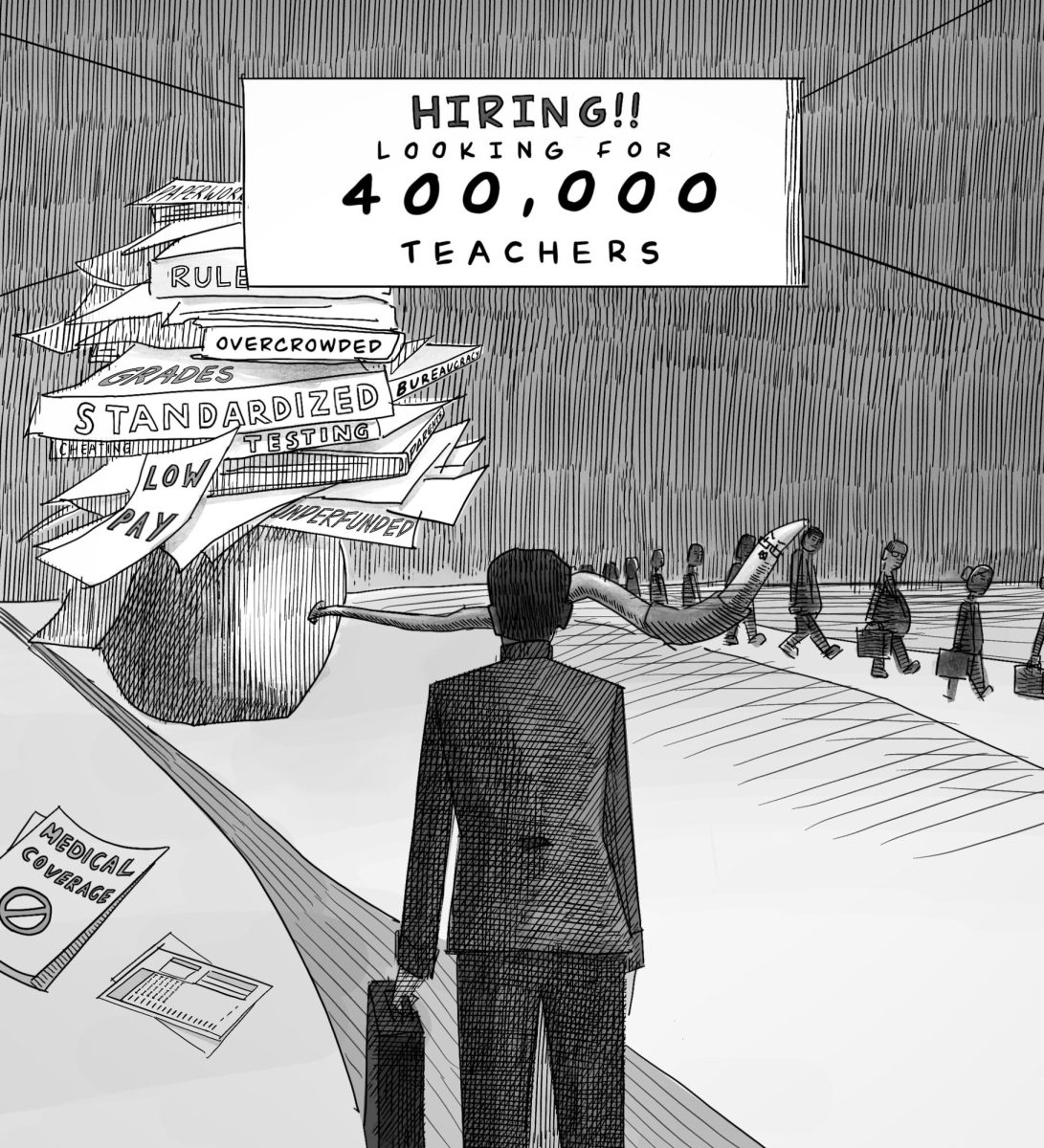In an age where connection is everything, what is the price of isolating students from their phones? Having a strict phone policy in schools, particularly in Irvington, is a counterproductive approach to fostering an effective learning environment, where online resources are vital for accessing hall passes and managing logistics.
Phones are often dismissed as distractions, but they are powerful educational tools that allow students to quickly access online resources. Assignments can easily be edited through mobile apps such as Google Classroom and Docs. In addition, students can efficiently conduct academic research through educational videos and content on their phones. According to World Metrics, 62% of high schoolers said that phones are convenient for organization as they can manage their schedules, assignments, and set reminders.
Phones also offer emotional support and alleviate loneliness while facilitating communication with friends and family. Students should have access to mental health information and resources to seek help, coping strategies, and a better understanding of their well-being.
Schools shouldn’t control what students do during their free time, such as the duration of advisory, which can be used as a mental break from the rigorous classes of the day. Research from the National Institutes of Health suggests that breaks such as advisory can help students relax before the next class begins, even enhancing memory and capability to use new information. According to PNAS, cognitive fatigue heavily influences students’ engagement and energy, and a study shows that the college students that took breaks observed a 6% increase in their test scores. Although it is a small percentage, these small improvements can lead to a bigger impact on overall student success. However, with the new policy in play, Irvington forces productivity in students, pushing them to take advantage of the time to study and complete homework. Those who do not have other personal devices are told to use bulky and slow Chromebooks instead of their portable and user-friendly phones. The Chromebooks are more difficult to navigate when it comes to features like text-to-speech, magnification, and touch screens. It also prevents the use of different apps or websites and blocks easy communication with students that want to text club members or project partners. Texting during an advisory is an opportunity to have logistical conversations without causing a disruption during ongoing lectures.
Implementing these phone policies also leads to unintended consequences. It creates an environment of mistrust, where students feel the need to break the rules to use their phone discreetly. Students shouldn’t even have the issue of hiding their phones to manage logistics, such as announcements, deadlines, reminders, grades, and even signing up for FLEX. Such policies restrict students’ autonomy and responsibility when they are not trusted to manage their own personal belongings, sending the message that they are incapable of making appropriate choices regarding their education.
The relationship between students and their phones is usually portrayed in a negative light, overlooking the benefits that phones have, especially considering that not every student is addicted to their screen. If phones are considered a distraction, it raises questions about why Irvington allows the use of personal laptops and iPads. Instead of outright banning phones, schools should focus on teaching responsible usage of technology so that students don’t use them unnecessarily in environments they shouldn’t. Even in classrooms, curriculums grow more digital, and locking up phones is a needless step backwards.
Schools should be less strict about their cell phone policies, especially when it comes to advisory periods. Administration should implement flexible guidelines to strike a balance between the benefits of technology and the need to focus in class. If Irvington has started to order us to lock our phones away in our backpacks, then what’s next? Placing them in pouches or our lockers? This policy might even result in the removal of advisory and FLEX as study times in general. Without a break, students will end up face-planting on their desks, so we need to break away from this phone policy.












